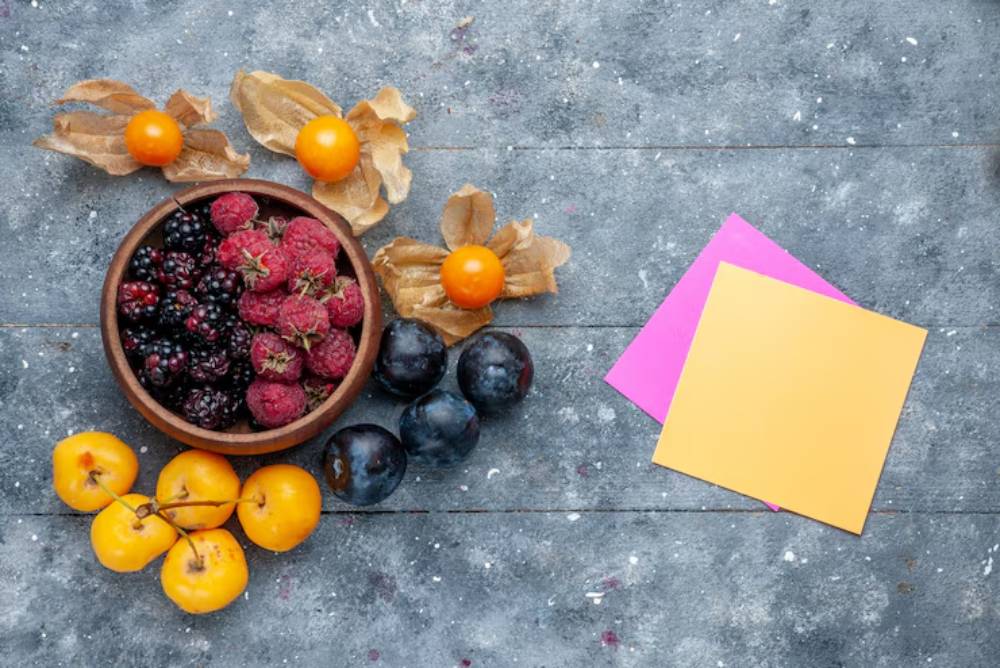
Brain-Friendly Nutrition for Study Sessions
You sit down to study, but your brain dims and your energy is low, even when you’re in the mood. As much as time management and effective study techniques help, there’s an unsung hero in your academic arsenal: your diet. What you eat doesn’t only influences your physical health; it can profoundly influence your cognitive function, attention and memory.
This isn’t just a matter of snatching a banana before an exam. Over to food, brain-friendly nutrition. By using food, you could help your focus and concentration and memory. Your meals and snacks matter. They can help you prepare for finals, revise notes, or stay focused during long lectures.
Key Findings
In this post, you’ll learn:
- The science behind food and cognitive function
- Which nutrients support memory and learning
- Easy, student-friendly meals and snacks for study sessions
- What to avoid when fuelling your brain
Let’s unlock your brain’s potential, one bite at a time.
The Brain-Nutrition Connection
Why Your Brain Needs the Right Fuel
Your brain is an energy-hungry organ. Despite only making up about 2% of your body weight, it uses around 20% of your total energy intake. This energy is largely derived from glucose, which comes from the carbohydrates you eat.
However, not all carbs are created equal. Highly processed sugars can give you a brief spike in energy, followed by a crash. Complex carbohydrates, like oats and sweet potatoes, release glucose slowly. This steady supply helps you stay focused for longer.
What the Research Says
A 2021 study in Nutrients showed that students who had a balanced diet with omega-3s, antioxidants, and low-glycaemic foods performed better on memory. A study in Frontiers in Human Neuroscience found that students who ate high-quality fats and proteins showed better cognitive flexibility and problem-solving skills.
So, yes—science backs up the idea that food is fuel for thought.
Top Nutrients for Cognitive Power
1. Omega-3 Fatty Acids
These are found in fatty fish (like salmon and sardines), flaxseeds, chia seeds, and walnuts. Omega-3s are vital for creating brain cell membranes. They also help brain cells communicate.
Quick tip: If you’re plant-based, opt for ALA-rich seeds and consider an algae-based omega-3 supplement.
2. Antioxidants

Berries, dark chocolate, spinach, and green tea are rich in antioxidants. These antioxidants help lower inflammation and oxidative stress. Both inflammation and oxidative stress can harm cognitive function.
Snack idea: A bowl of blueberries and a square of dark chocolate makes a brain-loving revision snack.
3. B Vitamins
B6, B9 (folate), and B12 are particularly important for nerve function and memory. You can find these in leafy greens, beans, eggs, and whole grains.
Meal idea: A veggie-packed omelette with wholegrain toast.
4. Protein
Protein is crucial for producing neurotransmitters like dopamine and serotonin. Include eggs, lentils, Greek yoghurt, and nuts in your meals.
Quick fix: A boiled egg and a handful of almonds can keep you full and focused during study blocks.
5. Iron and Zinc
Low iron levels can lead to brain fog and fatigue. Zinc, on the other hand, supports nerve communication and memory. Red meat, pumpkin seeds, and legumes are good sources.
Tip: Pair iron-rich foods with vitamin C (like bell peppers or citrus fruits) to enhance absorption.
Best Brain Foods for Study Sessions
Here are some smart choices to keep your mind sharp:
Breakfast

- Oats with banana, walnuts, and a drizzle of honey
- Wholegrain toast with avocado and poached egg
- Smoothie with berries, spinach, Greek yoghurt, and flaxseeds
Lunch
- Grilled chicken wrap with hummus and mixed greens
- Lentil salad with roasted veg and a lemon-tahini dressing
- Tuna and quinoa bowl with leafy greens and cherry tomatoes
Snacks
- Apple slices with peanut butter
- Trail mix with nuts, seeds, and a few dark chocolate chips
- Rice cakes with cottage cheese and sliced cucumber
Drinks

- Green tea: Contains caffeine and L-theanine for calm alertness
- Water with lemon: Keeps you hydrated and refreshed
- Berry smoothie: Combines antioxidants and brain-boosting nutrients
What to Avoid Before Studying
It’s not just about what you do eat—it’s also about what you don’t.
Avoid These Study Session Saboteurs:
- Sugary drinks and snacks: They cause energy crashes.
- Heavy, greasy meals: They can make you sluggish and sleepy.
- Excessive caffeine: One coffee can help; three may cause jitters and poor focus.
Pro tip: If you need a caffeine boost, try green tea or matcha. They’re gentler on your system and won’t spike your stress hormones as much.
Planning Your Study & Meal Schedule
Pairing your meals with your study sessions can enhance effectiveness:
- Eat a balanced meal 1–2 hours before studying
- Snack every 2–3 hours during long study days
- Stay hydrated with water throughout the session
- Avoid late-night cramming with heavy meals
Example schedule:
- 8:00 AM – Brain-fuelling breakfast
- 10:30 AM – Snack + short revision block
- 1:00 PM – Balanced lunch
- 4:00 PM – Light snack + practice questions
- 7:00 PM – Light dinner + review flashcards
Small Shifts, Big Results
You don’t need to become a nutritionist overnight. Start by making one change at a time. Maybe that means swapping sugary cereal for oats or trading crisps for a protein-rich snack. The point is: your food choices don’t have to be perfect to be powerful.
Consistency is key. Fueling your brain with the right foods boosts your focus and memory. You’ll also find more joy in learning.
Feed Your Focus
Your brain is your number one asset for learning. And just as no athlete would train on an empty stomach, you shouldn’t attempt to revise on a diet of sugar and caffeine alone.
Be prepared and opt for nutrient-dense options. This can increase your mental stamina, reduce stress and make studying more enjoyable.
So next time you study for an exam, remember: A better plan starts in the kitchen.
What’s your go-to brain food? Share your tips or favourite study snacks in the comments!


